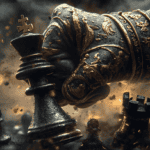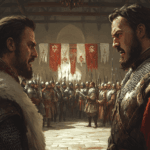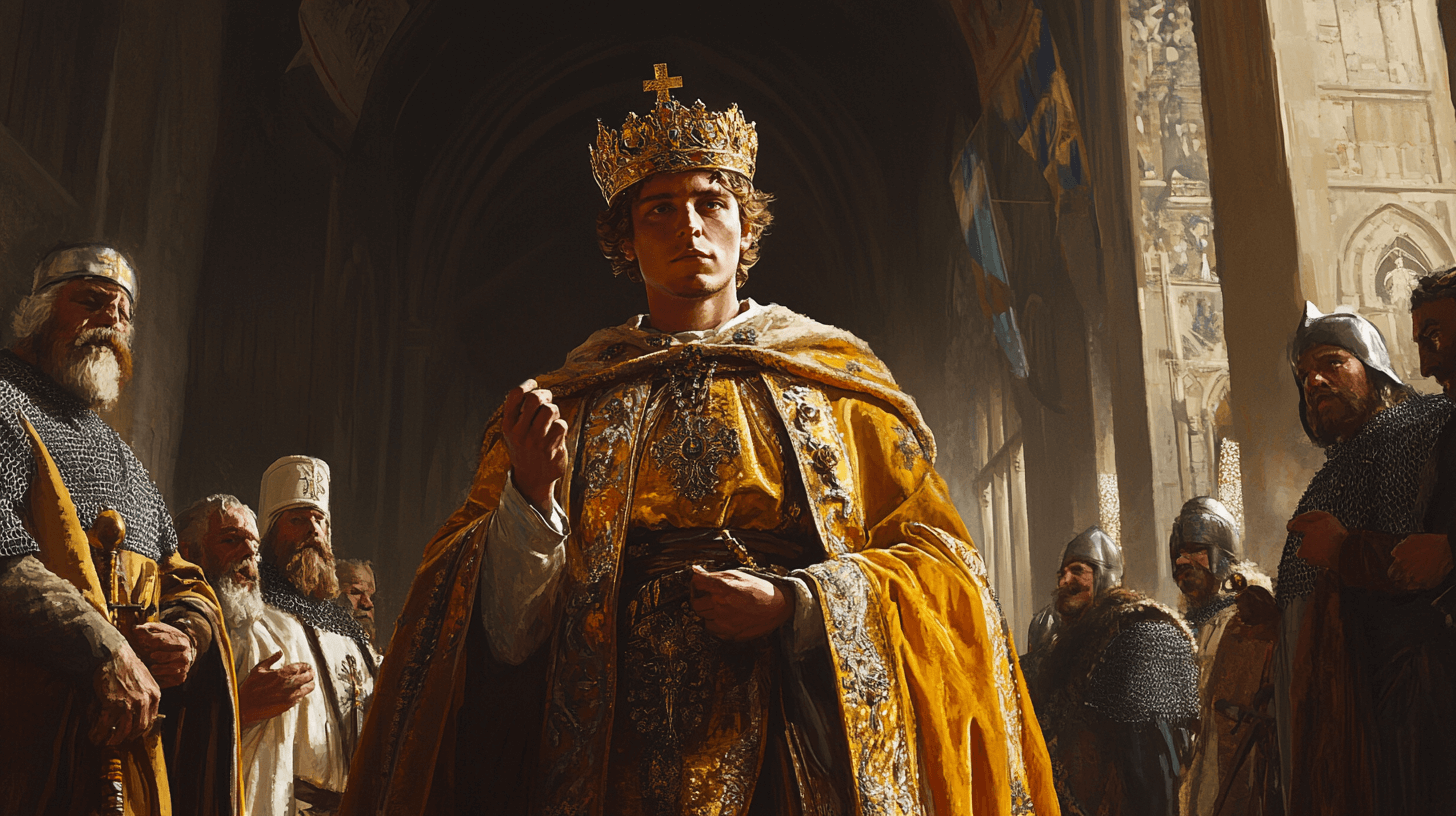
The year 1002 marked a pivotal moment in European history with the untimely death of Holy Roman Emperor Otto III at the young age of twenty-two. This event not only ended the life of a visionary ruler but also extinguished his ambitious dreams of reviving the glory of the ancient Roman Empire.
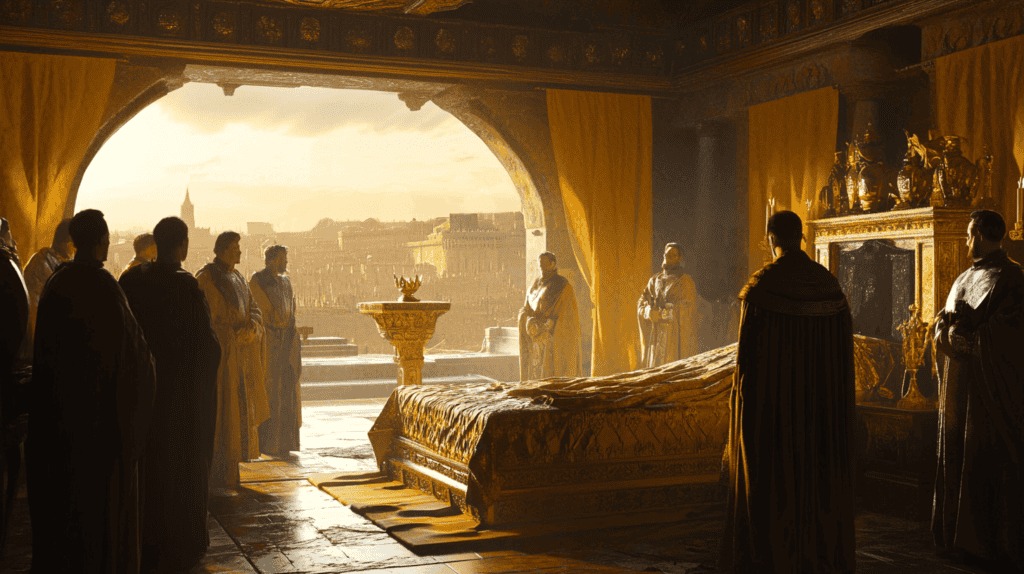
The Life and Reign of Otto III
Otto III ascended to the throne at a remarkably young age. Born in July 980, he was the son of Holy Roman Emperor Otto II and the Byzantine princess Theophano. His lineage combined the power of the Ottonian dynasty with the prestige of the Byzantine imperial family, setting the stage for his grand ambitions.
In 983, at the tender age of three, Otto was elected German king following his father’s death. His early years were marked by regencies, first under his mother Theophano until her death in 991, and then under his grandmother Adelaide of Italy. These formative years exposed Otto to a blend of German, Roman, and Byzantine influences that would shape his imperial vision.
Otto came of age in 994 and began to assert his authority as ruler. His reign was characterized by a unique blend of religious devotion and imperial ambition. He saw himself not just as a secular ruler but as a divinely appointed leader with a sacred mission to unite Christendom under a revived Roman Empire.
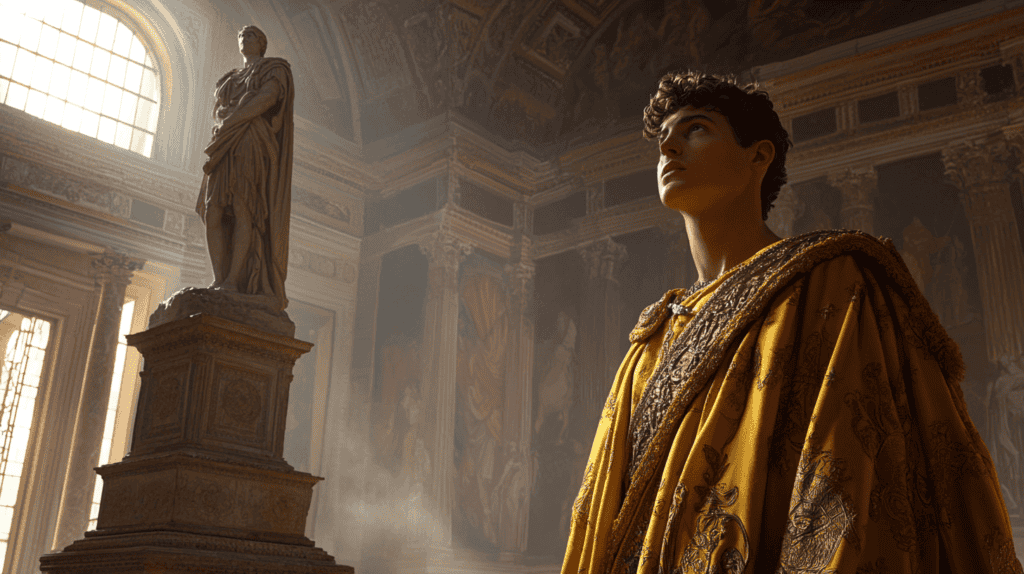
The Imperial Dream
Otto III’s vision for his empire was grandiose and deeply rooted in the idea of renovatio imperii Romanorum – the renewal of the Roman Empire. This concept went beyond mere political control; it encompassed a spiritual and cultural revival that would unite the Christian world under imperial leadership.
In pursuit of this dream, Otto took some significant steps:
Moving the Capital from Ravenna to Rome: In a bold move, Otto officially transferred his imperial capital to Rome, the heart of the ancient empire. This symbolic act was meant to underscore his commitment to reviving Roman traditions and authority.
Byzantine Influences: Heavily influenced by his Byzantine heritage, Otto introduced elaborate court ceremonies and customs reminiscent of the Eastern Roman Empire. He sought to create a court culture that would rival that of Constantinople.
Imperial Titles: Otto adopted grandiose titles such as “the servant of Jesus Christ,” “the servant of the apostles,” and “emperor of the world”. These titles reflected his view of himself as both a secular and spiritual leader.
Papal Alliances: Otto worked closely with the papacy, seeing it as a crucial partner in his imperial project. He engineered the election of his cousin as Pope Gregory V and later installed his former tutor Gerbert of Aurillac as Pope Sylvester II.
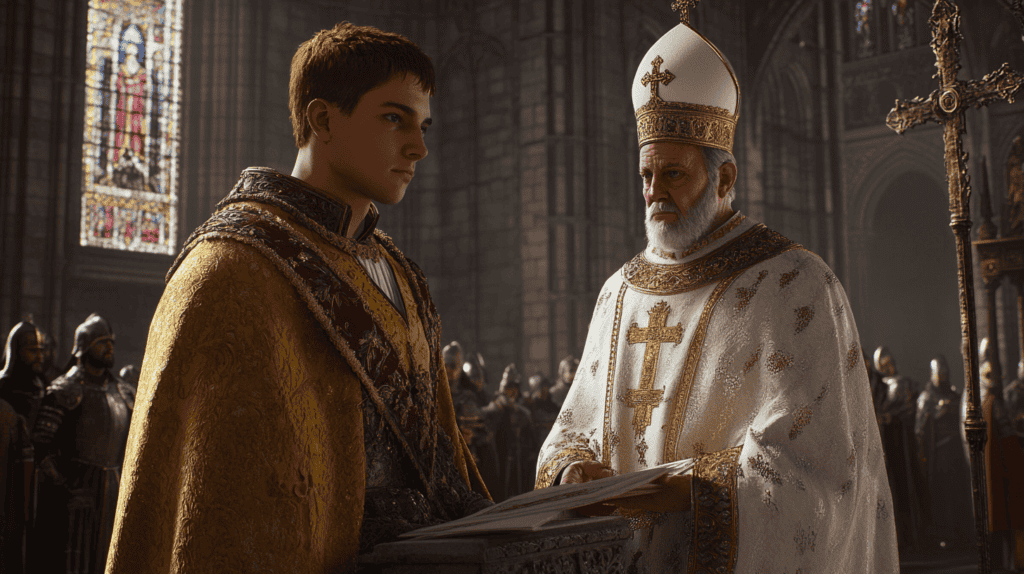
The Challenges and Setbacks
Despite his lofty ambitions, Otto’s reign was not without significant challenges. The emperor’s embrace of Byzantine customs and his focus on Rome created tensions with the German nobility, who felt their interests were being neglected. Additionally, Otto’s attempts to centralize power in Rome met with resistance from local nobles and city-states across Italy and Germany.
Otto faced various military threats, including conflicts with the Byzantine Empire in southern Italy and ongoing issues with rebellious nobles. Ironically, despite raising Rome’s predominance in Italy, the people of Rome, accustomed to a degree of autonomy, frequently rebelled against Otto’s rule.
The Final Days
The events leading to Otto’s death in 1002 were a microcosm of the challenges that had plagued his reign. In January 1001 the citizens of Tivoli, a town just 30 km east of Rome, rebelled and killed the officer Otto had put in charge there. Otto took his soldiers to Tivoli and the citizens quickly surrendered, handing over the murderers to the mother of the victim who forgave them.
This act of mercy, however, angered the people of Rome, who saw Tibur as a rival and wanted it destroyed. The Romans rebelled and Emperor Otto found himself in a perilous situation within his newly constructed imperial palace on the Palatine Hill in Rome. Surrounded by an angry, armed mob, the young emperor’s personal bodyguard was scattered across the city, defending various strategic points. His main military support, the armies of Henry of Bavaria and Hugh of Tuscany, were camped outside the city walls, unable to provide immediate assistance.
After three tense days of siege, Otto and his small band of loyal companions made a daring decision to break out. On the evening of the third day, Bishop Bernward of Hildesheim heard their confessions and conducted a solemn final mass. As night fell, the emperor and his men, numbering only about twenty, took up arms for what could have been their last stand.
The following morning brought a shift in the city’s mood. Otto’s successful escape had emboldened his supporters, who began to emerge from hiding. The Roman populace gathered at the tower where the emperor had taken refuge. From this vantage point, Otto delivered what would become his most renowned address:
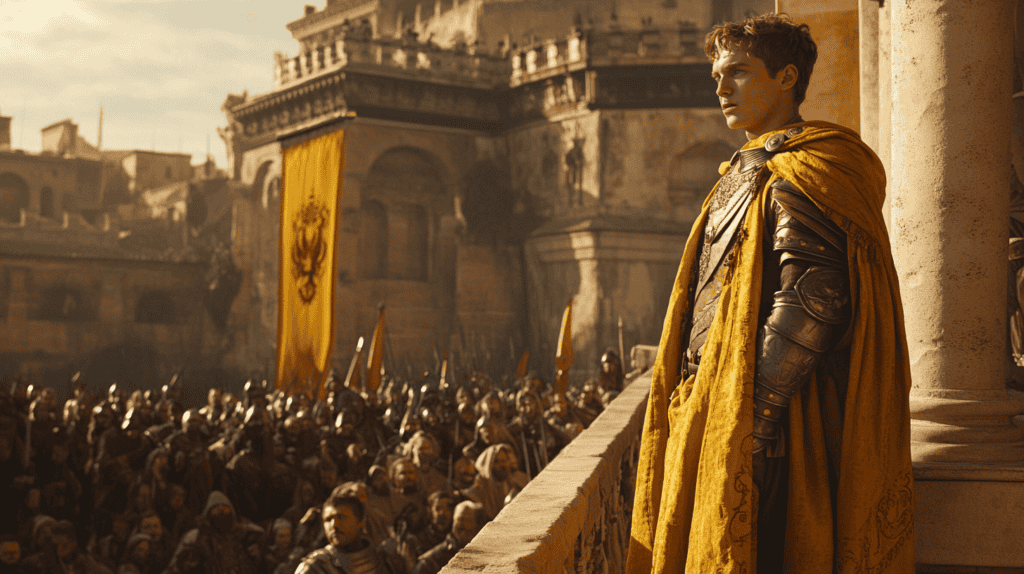
“Are you not my Romans? For your sake I left my homeland and my kinsmen, for the love of you I have rejected my Saxons and all Germans, my own blood. I have led you to the most remote part of our empire, where your fathers, when they subjected the World, never set foot. Thus, I wanted to spread your name and fame to the end of the earth. I have adopted you as sons. I have preferred you to all others. For your sake I have made myself loathed and hated by all, because I have preferred you to all others. And in return you have cast off your father and have cruelly murdered my friends. You have closed me out, although in truth you cannot exclude me, for I will never permit that you, whom I love with a fatherly love, should be exiled from my heart. I know the ringleaders of this uprising and can see them with my eyes. However, they are not afraid although everyone sees and knows them.”
This impassioned speech had an immediate effect on the crowd. In a sudden turn of events, the mob seized the ringleaders of the rebellion, beat them severely, and threw them at the emperor’s feet.
Otto returned to his palace on the Palatine, but the atmosphere had irrevocably changed. Urged by his military leaders, Henry of Bavaria and Hugh of Tuscany, Otto reluctantly agreed to leave Rome after two weeks. In a stark contrast to his grand imperial aspirations, the “Emperor of the Romans” was forced to sneak out of the holy city under the cover of darkness.
Initially, they camped outside Rome, hoping to subdue the city. However, with a small army and the threat of disease looming in the summer heat, Otto and Pope Sylvester II retreated to Ravenna. From there, Otto requested reinforcements from his German vassals, but support arrived slowly. An attempt to retake Rome in the autumn failed.
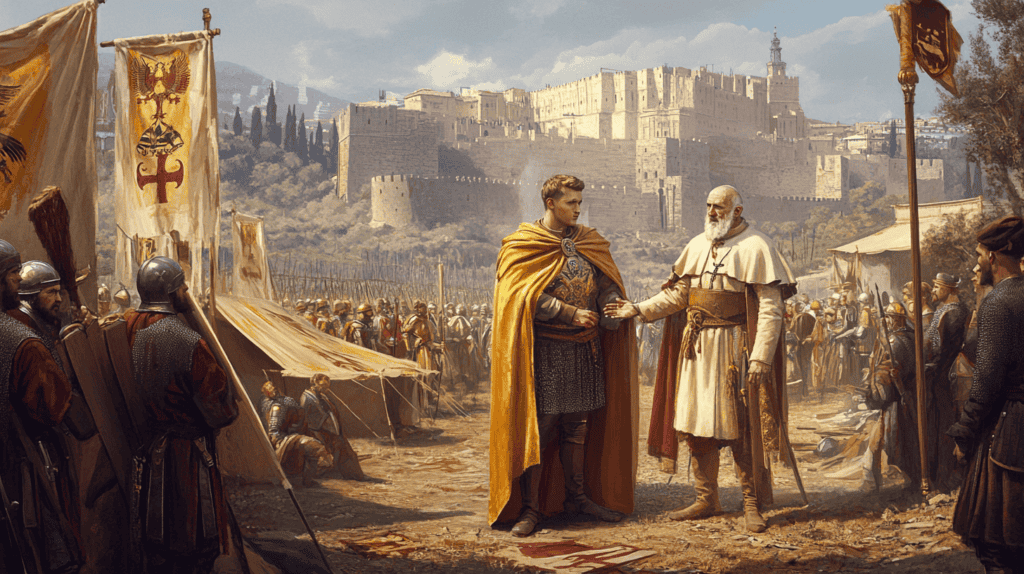
As Otto struggled in Italy, the situation in Germany grew unstable. A dispute between the bishops of Hildesheim and Magdeburg over the wealthy abbey of Gandersheim escalated, drawing in more German nobles and bishops. This internal strife made Otto’s Italian campaign a low priority for his vassals, with even rumors of insurrection circulating.
In December 1001, Otto’s position in Italy was further weakened by the death of Hugh of Tuscany, a key supporter, whose lands were quickly divided among relatives less loyal to the emperor. Many of Otto’s closest allies, including Bishop Bernward, had already returned to Germany.
Despite these setbacks, Otto marched on Rome again in early 1002. However, he was ambushed by Roman troops and forced to retreat to the fortress of Paterno, north of Rome. On January 11, Otto fell ill, likely with malaria which was endemic in Italy at the time. Despite his weakening condition, he insisted on maintaining his religious fasting regimen.
On January 24, 1002, at the age of just 21, Otto III died in Paterno, surrounded by relics and a few loyal companions, including Pope Sylvester II, his chancellor Heribert of Cologne, and his cousin Henry of Bavaria.
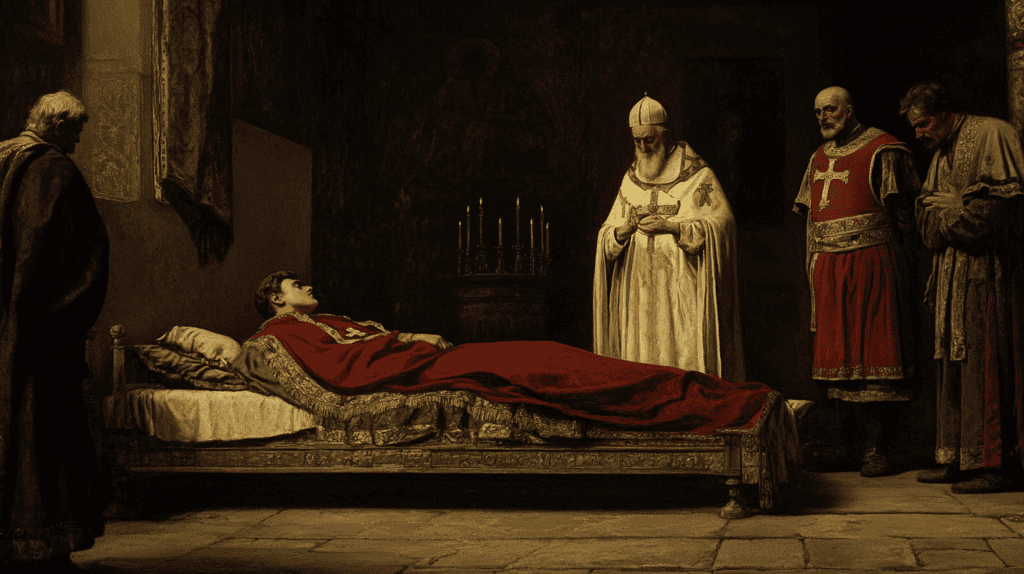
Otto’s death marked the end of his ambitious dream to restore the Roman Empire. His friends attempted to keep his death secret as they transported his body north, fighting off attacks from opportunistic Italian nobles. They finally reached the safety of Verona on February 7th, but behind them, Otto’s political system was already unraveling. Arduin of Ivrea was elected King of Italy, and Pope Sylvester’s reforms were halted upon his return to Rome.
Thus ended the young emperor’s grand vision of a renewed Roman Empire, a dream that had burned brightly but briefly, extinguished by the harsh realities of medieval politics and Otto III’s untimely death.
The Impact of Otto’s Death
The death of Otto III without an heir brought the Ottonian dynasty to an end, leading to a succession crisis in the Holy Roman Empire. Otto’s eventual successor, Henry II, would shift the empire’s focus back to Germany, abandoning the dream of a Rome-centered empire, and leading to increased autonomy for Italian city-states.
The young emperor’s dreams were perhaps too ambitious for their time. The realities of medieval politics, the resistance of local powers, and the diverging interests of the German and Italian nobility all posed significant obstacles to his grand plans.
Yet, Otto III’s reign remains a fascinating “what if” in European history. Had he lived longer, could he have overcome the challenges and realized his vision of a universal Christian empire? Or were the forces of localism and fragmentation too strong to be overcome?


